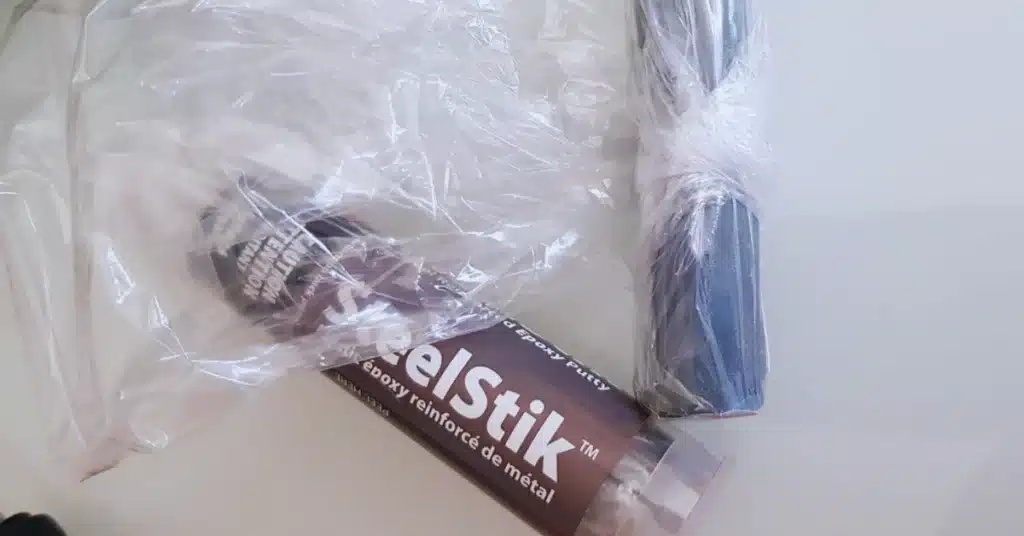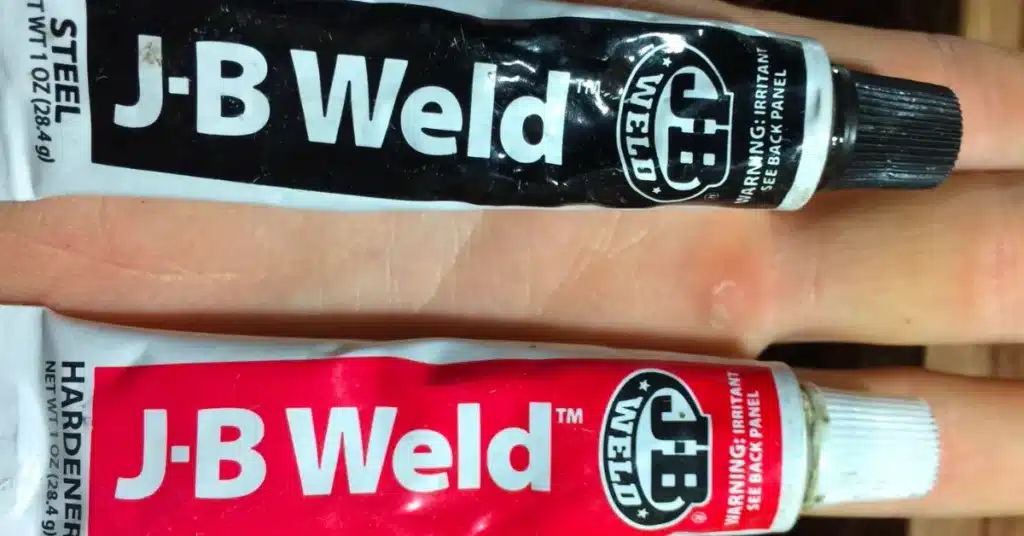JB Weld is a popular adhesive brand that offers versatile adhesives to meet the needs of their users. From putty to epoxy resins, fiberglass repairs, and others, the options are quite wide.
However, while surfing through all the JB Weld products, have you ever wondered how the putty and epoxy adhesive differ? Or are they the same thing with different names?
To help you shed all your confusion, I have compared JB Weld Putty vs. Epoxy in great detail below.
Go through the comparison to understand how these two types of products from the same brand are similar and different from one another.
Read More: JB Weld Vs. Epoxy
JB Weld Putty vs. JB Weld Epoxy
Even though both the putty and epoxy are from JB Weld, there are some major differences between these two popular adhesives.
I have compared and summarized the differences for your better understanding.

Quick Comparison
| Features | JB Weld Putty | JB Weld Epoxy |
| Number of Products | 8 | 10 |
| Application | Suitable for filling gaps, cracks, and holes | Suitable for bonding, sealing, and repairing |
| Consistency | Soft, putty consistency | Liquid epoxy |
| Heat Resistance | Up to 500ºF | Up to 550ºF |
| Waterproof | Yes | No |
| Curing Time | 8 hours | 24-48 hours |
Read More: Bondo vs. JB Weld
Major Differences Between JB Weld Putty and JB Weld Epoxy
Now that you know all the major differences between JB Weld Putty and JB Weld Epoxy, jump into their detailed discussion to learn more.
Number of Products
One amazing thing about JB Weld is that they offer a wide range of products under each product category.
For starters, JB Weld has 8 different types of putty in its line. All these puttys have different objectives and, hence, work differently on different types of materials and surfaces.
The same is true for the JB Weld epoxy adhesives. There are 10 different epoxy adhesives; they are versatile and can be used on different surfaces as well.
Application
The application surface and uses of both the JB Weld putty and epoxy are very different. In fact, I think this is the most major difference between these two adhesives.
As the name suggests, a putty is primarily used for filling gaps, cracks, and holes on different surfaces like steel, wood, fiberglass, and others.
On the other hand, epoxy resin adhesives are suitable for bonding, sealing, and repairing versatile objects for your convenience.
Be it metal, wood, plastic, or any other type of material, this glue would create a strong bond.

Heat Resistance
Because they have different compositions and different consistencies, the heat-resistant capabilities of both the JB Weld putty and epoxy adhesives differ.
Depending on the specific putty you use, JB Weld putties can withstand up to 500ºF of heat before melting down and messing up the seal.
On the contrary, JB Weld epoxy resin adhesives can resist a maximum of 550ºF of heat and, therefore, last longer than the putty.
Waterproof
Just like the heat resistant level, the waterproof feature of the JB Weld putty and epoxy also differs,
As the putties of this brand are specially made, they are waterproof and, hence, won’t come off even if you drench the surface in water.
But the same isn’t true for JB Weld epoxy resin adhesives. As strong and durable bond as these adhesives form, they might come off if drenched in water for a longer time period.
However, note that in this section, we exclusively talked about the “Waterproof” feature and not the “water resistant” capabilities.
Curing Time
There are some significant differences between the cure time of the JB weld Putty and Epoxy resin.
Even though the putty is thick, it cures relatively quickly. Depending on the type of putty you are using, it would take around 6-8 hours maximum for JB Weld putty to dry.
On the other hand, a JB Weld epoxy resin adhesive takes somewhere between 24 hours to 48 hours to cure completely.
Read More: JB Kwik Vs. JB Weld
Last Opinion
There is no doubt that both the JB Weld putty and epoxy have some significant differences, and it is very clear from the JB Weld Putty vs. JB Weld Epoxy comparison.
But as they are used on different surfaces for different purposes, you should get the one that suits your needs the most instead of the one with better properties.
Otherwise, there is a high chance that you might achieve the required results if you use the wrong type of products.

